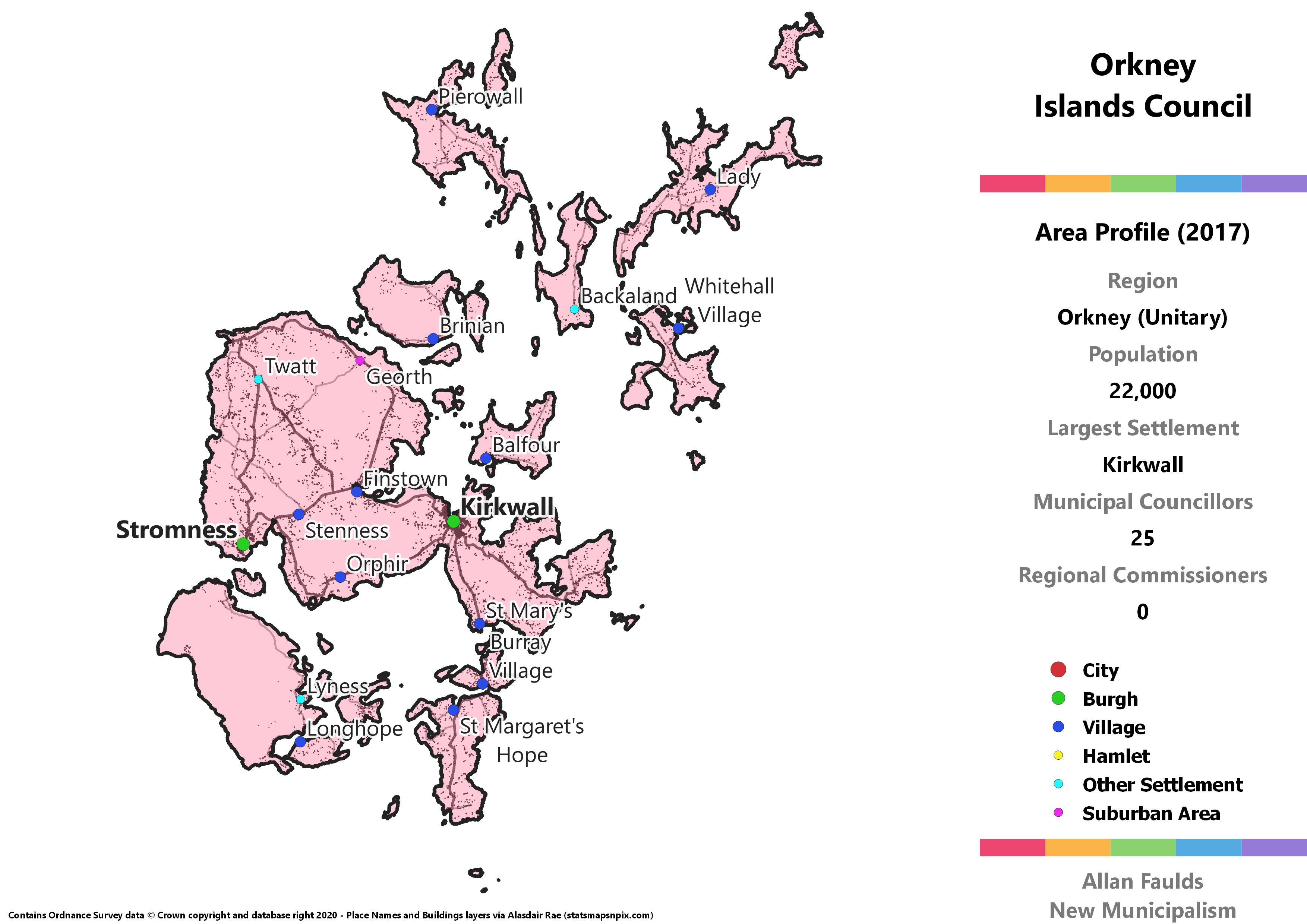Orkney Islands
Key Statistics
Municipalities: 1 (Unitary)
Population: 22.000
Largest Settlement: Kirkwall
Municipal Councillors: 25
Municipality Description
The closer of the two sets of Northern Isles, Orkney has always been its own area for local government purposes. Since the 1973 Act it has been a Unitary Authority, but before that it had a County Council covering the whole area, with Burghs at Kirkwall and Stromness, and Districts aligning with the major islands. Given the unique local character, issues and identity, it makes sense to continue with Orkney as its own area rather than incorporate it into a wider region.
As with the other island chains, in spite of a small population you could argue the need for some more local units, especially for the islands outside the Mainland (here that’s the largest island, not the wider Scottish mainland). I’m sympathetic to that in principle, but their populations are really very small, with just over 80% of Orkney’s residents being on the Mainland. That might make the resourcing, both in human and finance terms, of formal Island Districts within an Orkney Region somewhat difficult.
In the same way that I don’t think it’s necessary to include the biggest cities in regions defined by statute, it might be possible to deliver local government on the smaller islands without that being legally defined. Allowing, or perhaps requiring, Orkney Islands Council to implement a decentralisation scheme that they are able to tailor to local tastes and needs might work.
Politically speaking, Orkney has a substantial Independent bent. That doesn’t translate well to a simple list system, but for simplicity I effectively pooled the vote share of most Independents and treated them as a party list. As with the actual Council elected in 2017 however, a slightly expanded one with a different system wouldn’t be purely Independent.
The Greens won a councillor here at that election as the only national party to do so – though they were the only one to stand as well, somewhat detracting from the feat. More prominently, the Orkney Manifesto Group are here estimated to have 4 councillors (they stood and won 2 candidates in reality). A specific local party, the OMG serve as an example of what I think places that like to elect Independent candidates should have instead, which is local parties.
As the OMG themselves argue, a Council that is exclusively or substantially Independent can actually be very opaque, with an ill-defined policy agenda and run on the basis of unclear and unspoken allegiances and personal relationships. Political parties on the other hand, as maligned as they often are, at least bring with them a certain degree of policy coherence and accountability. Through local political parties, it’s absolutely possible to maintain a degree of local focus separate from the often overly-partisan nature of national politics, whilst vastly improving the transparency of the Council and its policy making processes. Perhaps a list-based system might spur a process of forming such parties?
